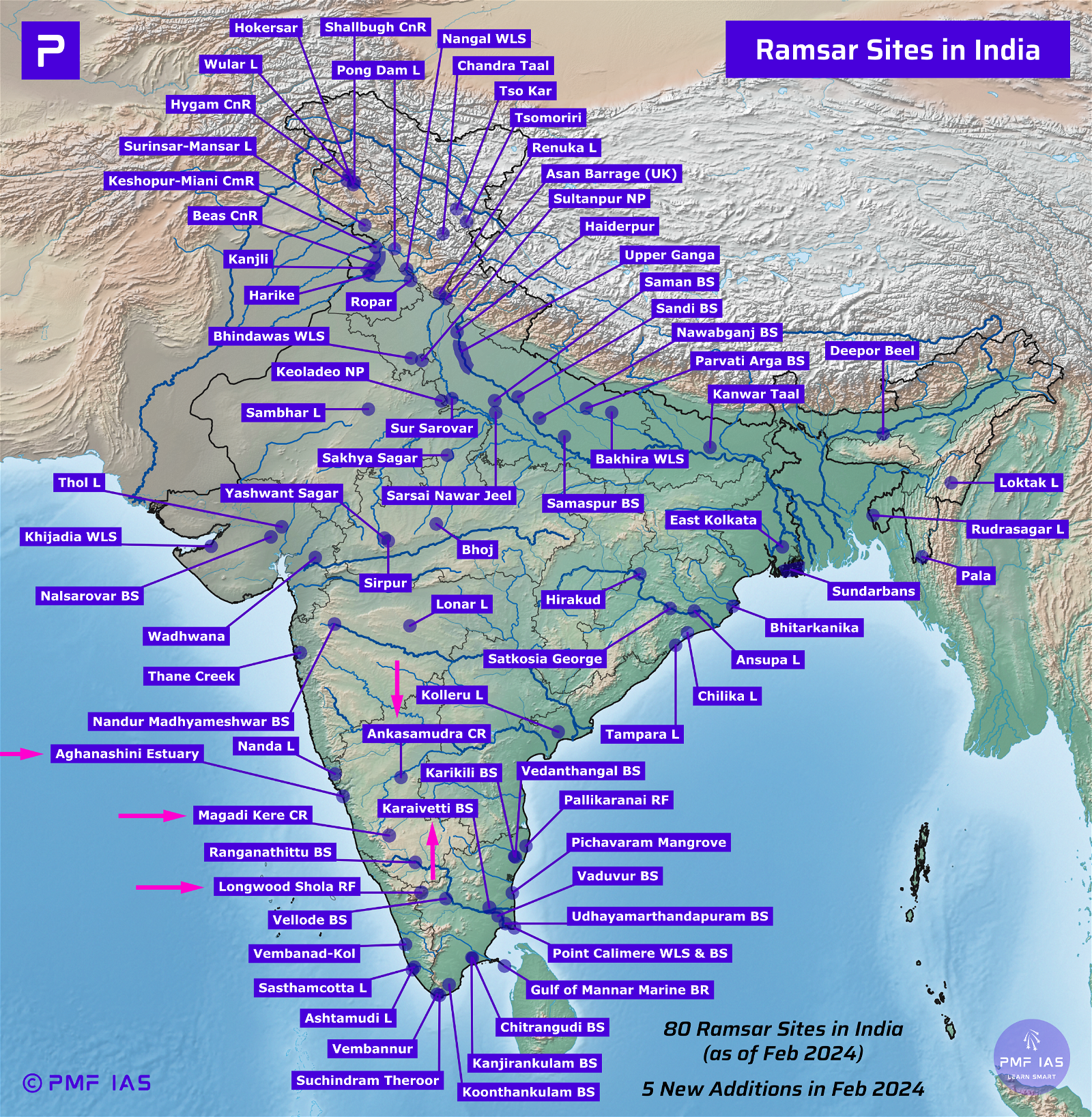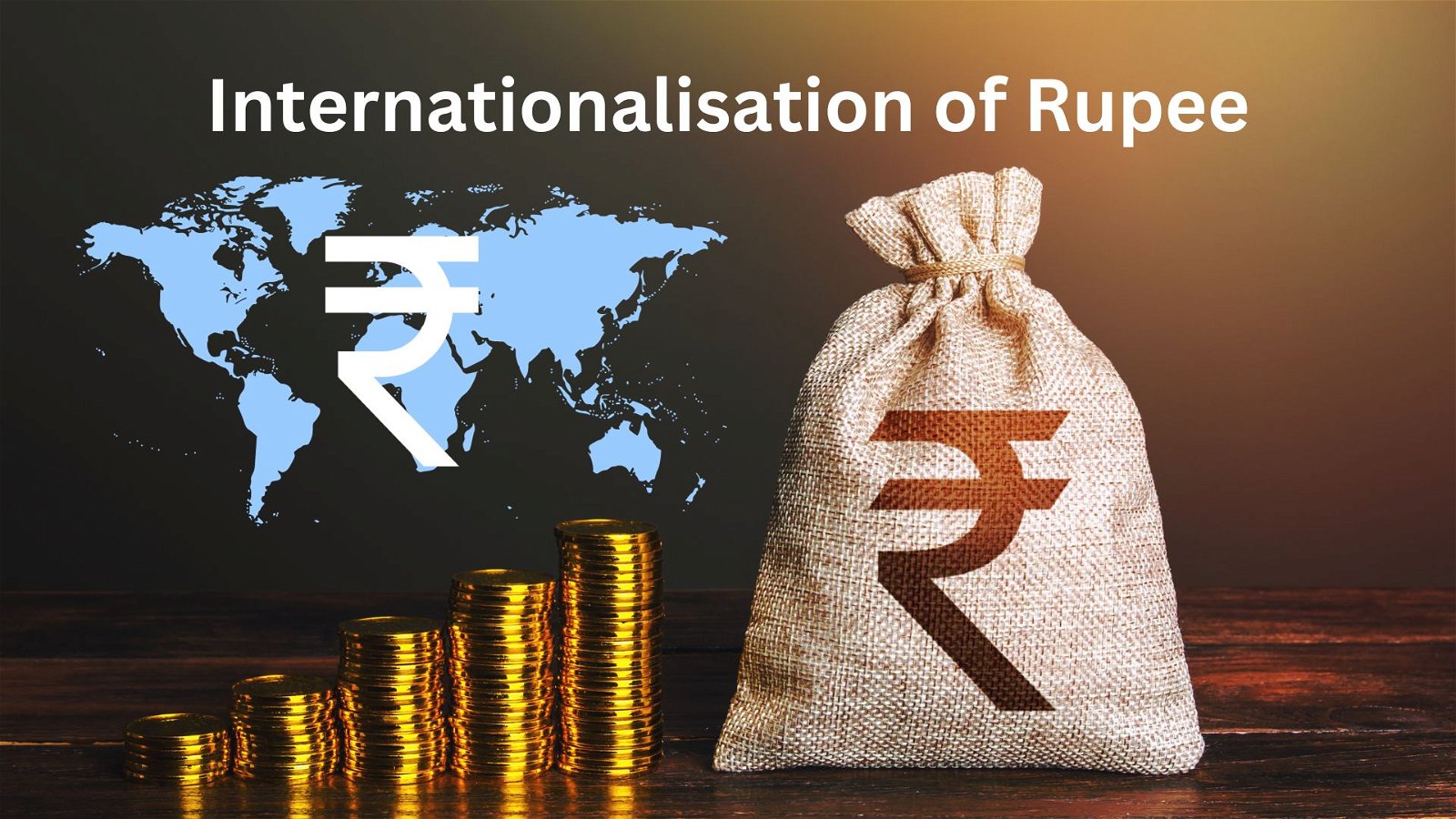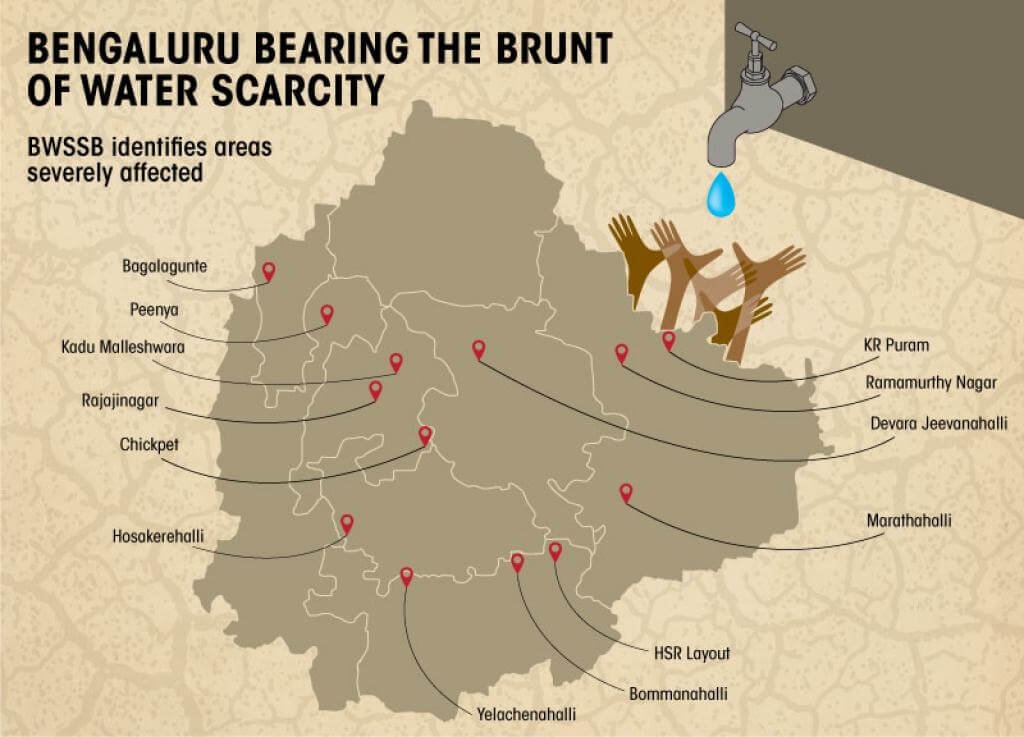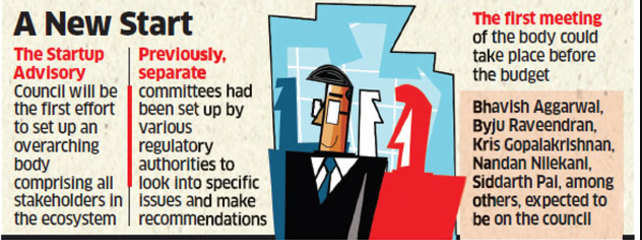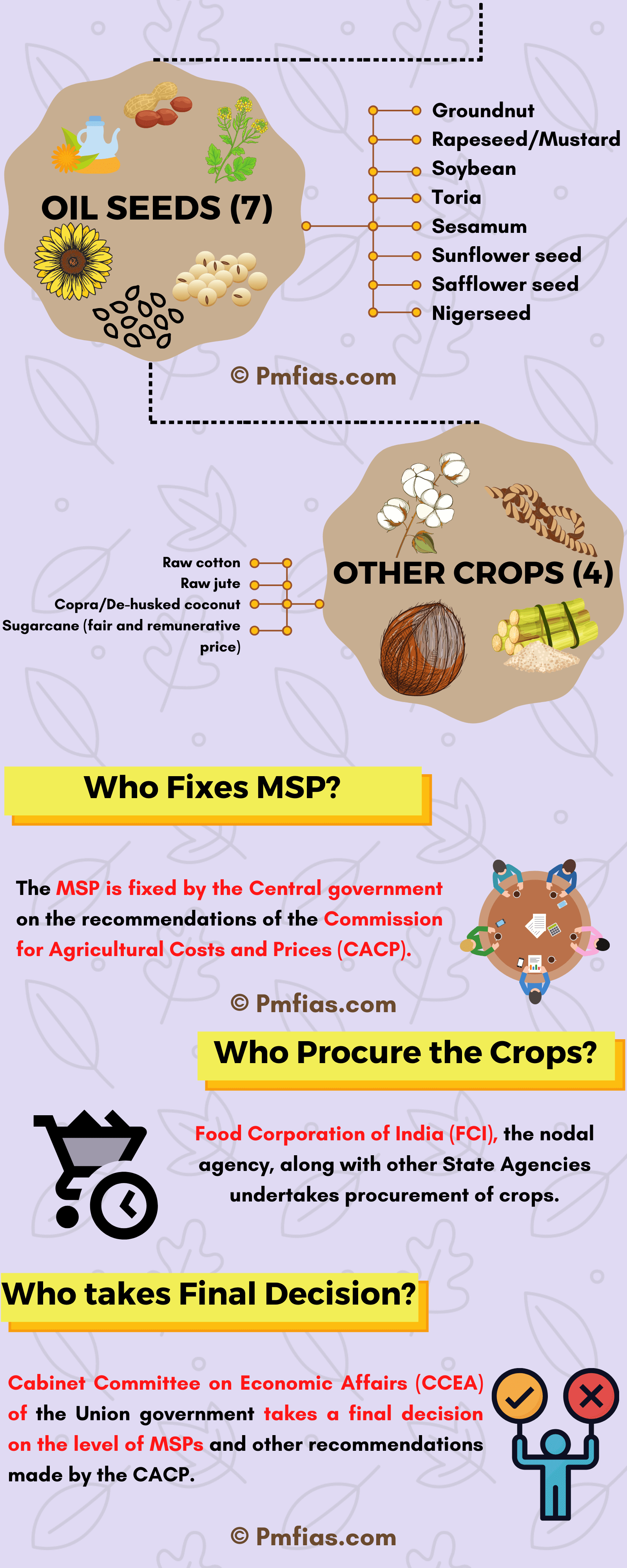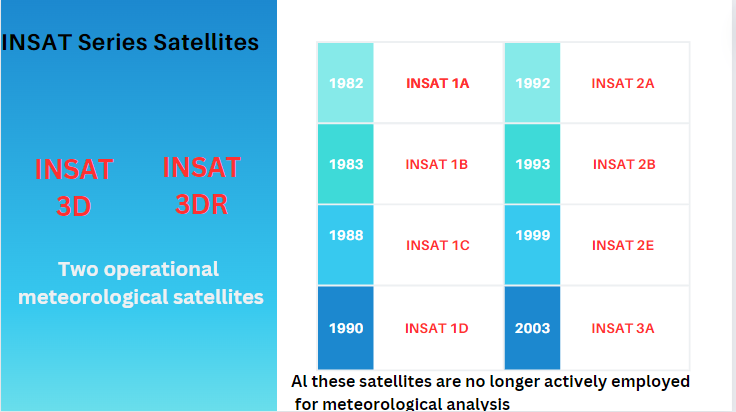
Climate Crisis and Right to Life
Subscribers of "Current Affairs" course can Download Daily Current Affairs in PDF/DOC
Subscribe to Never Miss an Important Update! Assured Discounts on New Products!
Must Join PMF IAS Telegram Channel & PMF IAS History Telegram Channel
- Context (TOI I IE): Climate change impacts the constitutional guarantee of the right to life, the SC said in a recent judgment.
- SC has expanded the scope of Articles 14 and 21 to include the “right against the adverse effects of climate change”.
- The bench was hearing a plea to protect the Great Indian Bustard (GIB) and lesser floricans from losing their habitat due to power transmission lines.
Great Indian Bustard
Protection Status
GIB ‘arc’
|
S.C’s Observations
- Article 48A: The state shall endeavour to protect and improve the environment and to safeguard the forests and wildlife of the country.
- Clause (g) of Article 51A: It shall be the duty of every citizen of India to protect and improve the natural environment, including forests, lakes, rivers and wildlife, and to have compassion for living creatures.
- Although Art 48A and 51A are not justiciable provisions of the IC, they are indications that the IC recognises the importance of the natural world.
- The importance of the environment becomes a right in other parts of the IC.
- Articles 14 and 21 are essential sources of the right to a clean environment and the right against the adverse effects of climate change.
- Governmental policy rules and regulations are recognising the adverse effects of climate change and seeking to combat it.
- But there is no single or umbrella legislation in India relating to climate change and the attendant concerns.
- The right to life is not fully realised without a clean, stable environment that is unimpacted by climate change’s vagaries.
- The right to health (which is a part of the right part of the right to life under Article 21) is impacted by factors such as
- Air pollution,
- Shifts in vector-borne diseases,
- Rising temperatures,
- Droughts,
- Shortages in food supplies due to crop failure,
- Storms,
- Inability of underserved communities to adapt to climate change or cope with its effects.
- These violate the right to life (Article 21) as well as the right to equality (Article 14).
- If climate change and environmental degradation lead to acute food and water shortages in a particular area, poorer communities will suffer more than richer ones.
- Case Study: Court discussed the plight of tribals in the Andaman & Nicobar Islands, highlighting how their relationship with nature is intertwined with their cultural and religious practices.
Other Key points from the Judgement
- India aimed to achieve an installed renewable energy capacity (excluding large hydro) of 175 GW (Gigawatts) by 2022.
- The future goal is 450 GW installed capacity by 2030.
- The promotion of renewable energy plays a crucial role in promoting social equity for all segments of society, especially in rural and underserved areas.
- This contributes to poverty alleviation, enhances quality of life, and fosters inclusive growth and development across the nation.
- Rampant air pollution emphasises the need for cleaner energy sources like solar to combat pollution caused by fossil fuels.
- Declining groundwater levels and decreasing annual rainfall underscore the importance of diversifying energy sources.
- Solar power, unlike coal, does not strain groundwater supplies.
United Nations Resolution, 2022-Healthy Environment as a Human Right
- The resolution declares access to a clean, healthy environment as a universal human right.
- India voted for the resolution.
- Russia and Iran abstained from voting.
- Only through conventions and treaties do state parties undertake obligations for such rights.
Provisions of the Resolution
- Every person on the planet has the right to live in a clean, healthy environment.
- Climate change and environmental degradation are the most critical threats in the future.
- Member states can unite in the collective fight against the triple planetary crisis of climate change, biodiversity loss and pollution.
- The declaration adopted by over 160 UN member nations, including India, is not legally binding.
Benefits
- It will help to reduce environmental injustices and protection gaps.
- It can empower people, especially those in vulnerable situations, including environmental human rights defenders, children, youth, women and indigenous people.
- This right (Access to Clean, Healthy Environment) was not included in the Universal Declaration of Human Rights, 1948.
Similar efforts to recognise Right against climate change as a Human Right
- In 2019, the UN Committee on the Elimination of Discrimination Against Women, Economic, Social and Cultural Rights, the Protection of the Rights of All Migrant Workers, the Rights of the Child, and the Rights of Persons with Disabilities jointly issued a statement in which they recognised that-
- State parties have obligations, including extra-territorial obligations, to respect, protect and fulfil all human rights of all peoples.
- Failure to take measures to prevent foreseeable human rights harm caused by climate change could constitute a violation of States’ human rights obligations.
- The UN High Commissioner for Human Rights emphasised that climate change directly and indirectly affects a broad spectrum of internationally guaranteed human rights.
- The 2015 United Nations Environment Programme report also outlined five human rights obligations related to climate change, including both mitigation and adaptation efforts.
- In 2017, the Inter-American Court of Human Rights issued an advisory opinion affirming the right to a healthy environment as a fundamental human right.
Recent Swiss Court Judgement
- The Swiss government had violated the human right to private and family life by failing to put in place sufficient domestic policies to tackle climate change.
- This includes failure to quantify, through a carbon budget or otherwise, national greenhouse gas emissions limitations.
- Swiss government also had failed to meet its past greenhouse gas emission reduction targets, by not putting in place measures to ensure the goals were achieved.
Article 21 of the Indian Constitution
- Article 21: Protection of Life and Personal Liberty
- No person shall be deprived of his life or personal liberty except procedure established by law.
- This fundamental right is available to every person, citizens, and foreigners alike.
- Article 21 provides two rights:
- Right to life
- Right to personal liberty
- The SC of India has described this right as the ‘heart of fundamental rights’.
- This implies that this right has been provided against the State only.
- State here includes not just the government but also government departments, local bodies, the legislatures, etc.
- The right to life is not just about the right to survive. It also entails being able to live a complete life of dignity and meaning.
List of rights that Article 21
- Right to privacy
- Right to go abroad
- Right to shelter
- Right against solitary confinement
- Right to social justice and economic empowerment
- Right against handcuffing
- Right against custodial death
- Right against delayed execution
- Doctors’ assistance
- Right against public hanging
- Protection of cultural heritage
- Right to pollution-free water and air
- Right of every child to a full development
- Right to health and medical aid
- Right to education
- Protection of under-trials
Article 14-Right to equality
- The State shall not deny any person equality before the law or equal protection of the laws within the territory of India.
- Article 14 rejects any discrimination based on caste, race, religion, place of birth or sex.
- This Article has a wide ambit and applicability to safeguard the rights of people residing in India.





![PMF IAS Environment for UPSC 2022-23 [paperback] PMF IAS [Nov 30, 2021]…](https://pmfias.b-cdn.net/wp-content/uploads/2024/04/pmfiasenvironmentforupsc2022-23paperbackpmfiasnov302021.jpg)
